West Bengal: India state elections go ahead as deaths hit record high
- Published
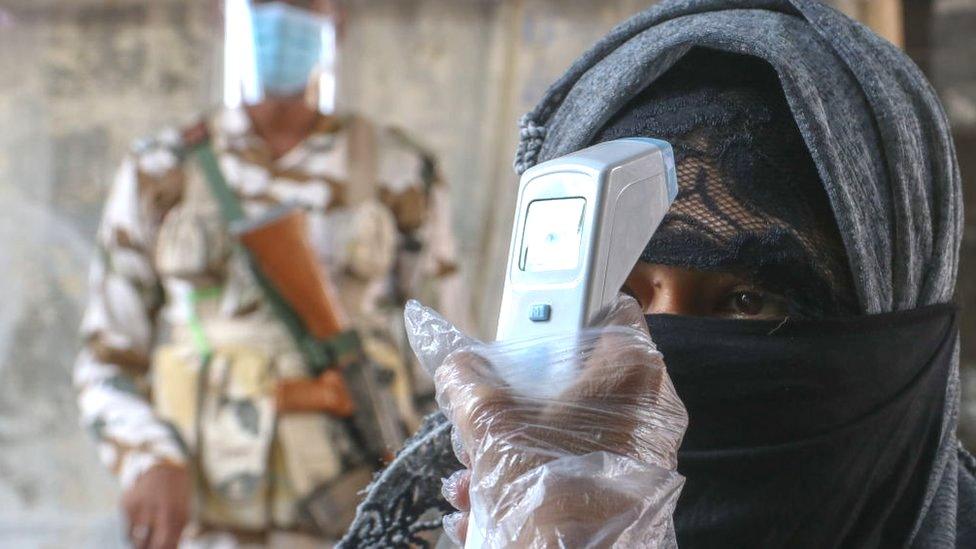
Voters in the Indian state of West Bengal go to the polls
People in the Indian state of West Bengal are voting in the final phase of elections despite soaring Covid cases.
Long queues were seen outside polling booths, raising concerns about further spread of the virus amidst a deadly second wave.
Experts fear West Bengal could be the next epicentre. Cases rose by 17,000 on Wednesday - a state record.
In total, India reported 379,257 new infections on Thursday, the world's highest single-day total.
The country also reported 3,645 deaths from coronavirus - another unwanted record, in this case the highest number of fatalities in a single day since the start of the pandemic.
West Bengal has already seen seven phases of voting. The state is one of the few where Prime Minister Narendra Modi does not have a majority of parliamentary seats.
There has been a lot of criticism that he continued to hold large rallies there even as the virus began overwhelming the country.
The BBC's correspondent in the area, Amitabha Bhattasali, says some of the biggest rallies, including those attended by Mr Modi, saw throngs of people not wearing masks or maintaining social distancing.
Fears run high amid West Bengal election
What is happening now in India?
Hospitals have been overwhelmed, oxygen is in critically low supply and crematoriums are operating non-stop.
The overall death toll officially surpassed 200,000 on Wednesday, though experts believe the actual number could be much higher.
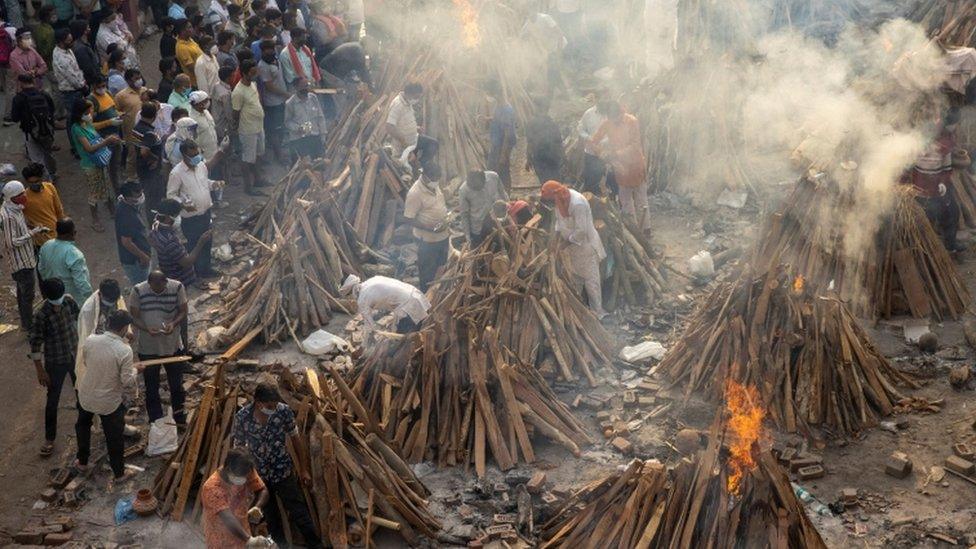
Crematoriums are working throughout the night and using empty spaces like parks and car parks to build makeshift funeral pyres
What about vaccines?
The government had said that all adults will be eligible for Covid-19 vaccinations from 1 May, with online registration opening from 28 April.
But people on social media complained that they were not able to get slots because the website crashed soon after it opened.
So far, India has been vaccinating health workers, front line workers and adults over the age of 45.
But less than 10% of the population has received an initial jab and there are concerns about meeting demand.
Although India is one of the world's biggest producers of vaccines, it does not yet have the stocks for the roughly 600 million people who will be eligible from 1 May.
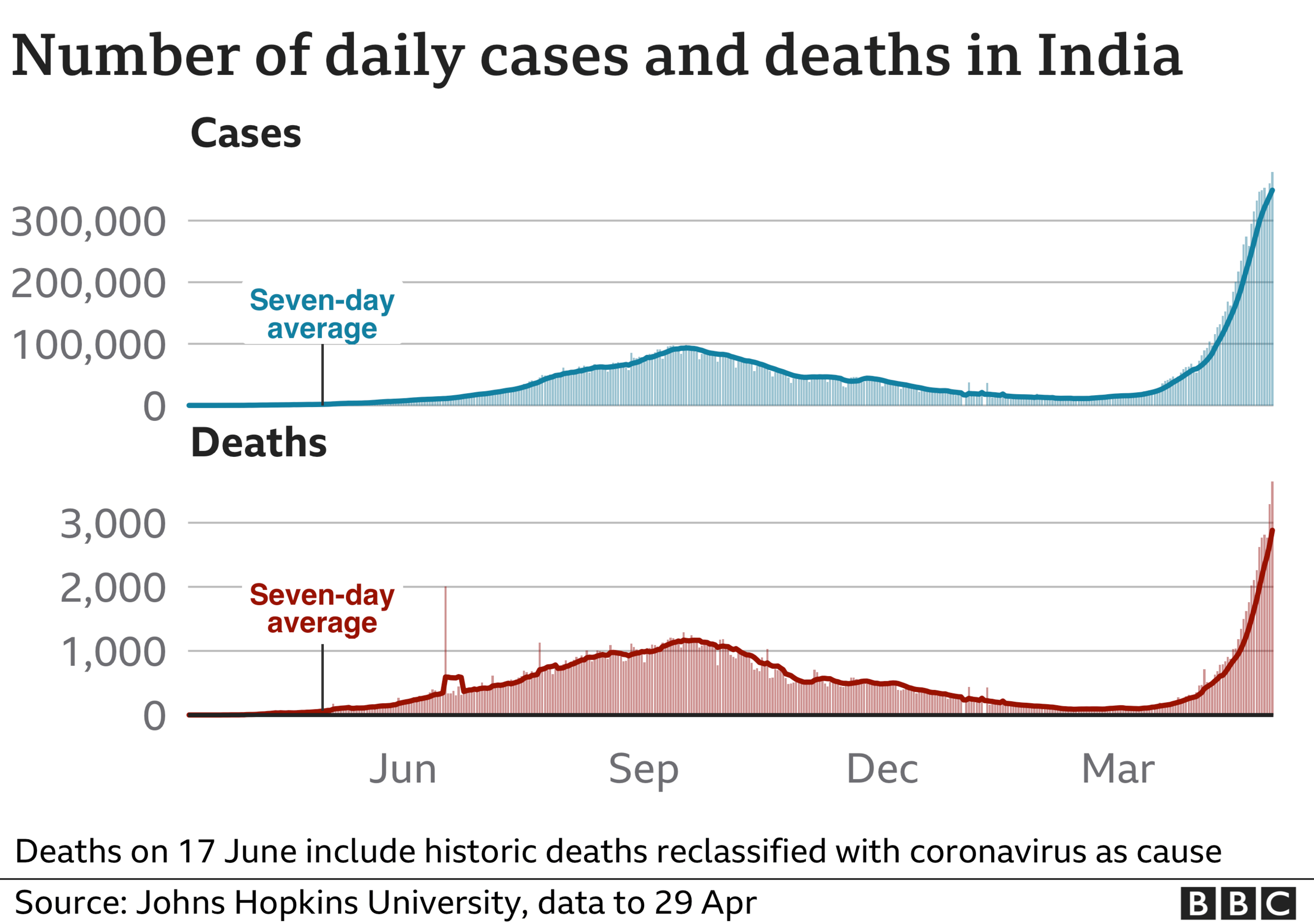

The White House says the United States is redirecting its own order of AstraZeneca manufacturing supplies to India, allowing it to make more than 20 million doses of the vaccine.
Epidemiologist Bhramar Mukherjee says India must combine the immunisation drive with a widespread lockdown to slow the spread of the virus.
Allow X content?
This article contains content provided by X. We ask for your permission before anything is loaded, as they may be using cookies and other technologies. You may want to read X’s cookie policy, external and privacy policy, external before accepting. To view this content choose ‘accept and continue’.

Several parts of the country are under lockdown and curfew, including in the capital Delhi.
The government of Maharashtra, which is home to the financial capital Mumbai, is considering extending its lockdown until mid-May.
There is no lockdown or curfew in West Bengal state though.
Related topics
- Published28 April 2021
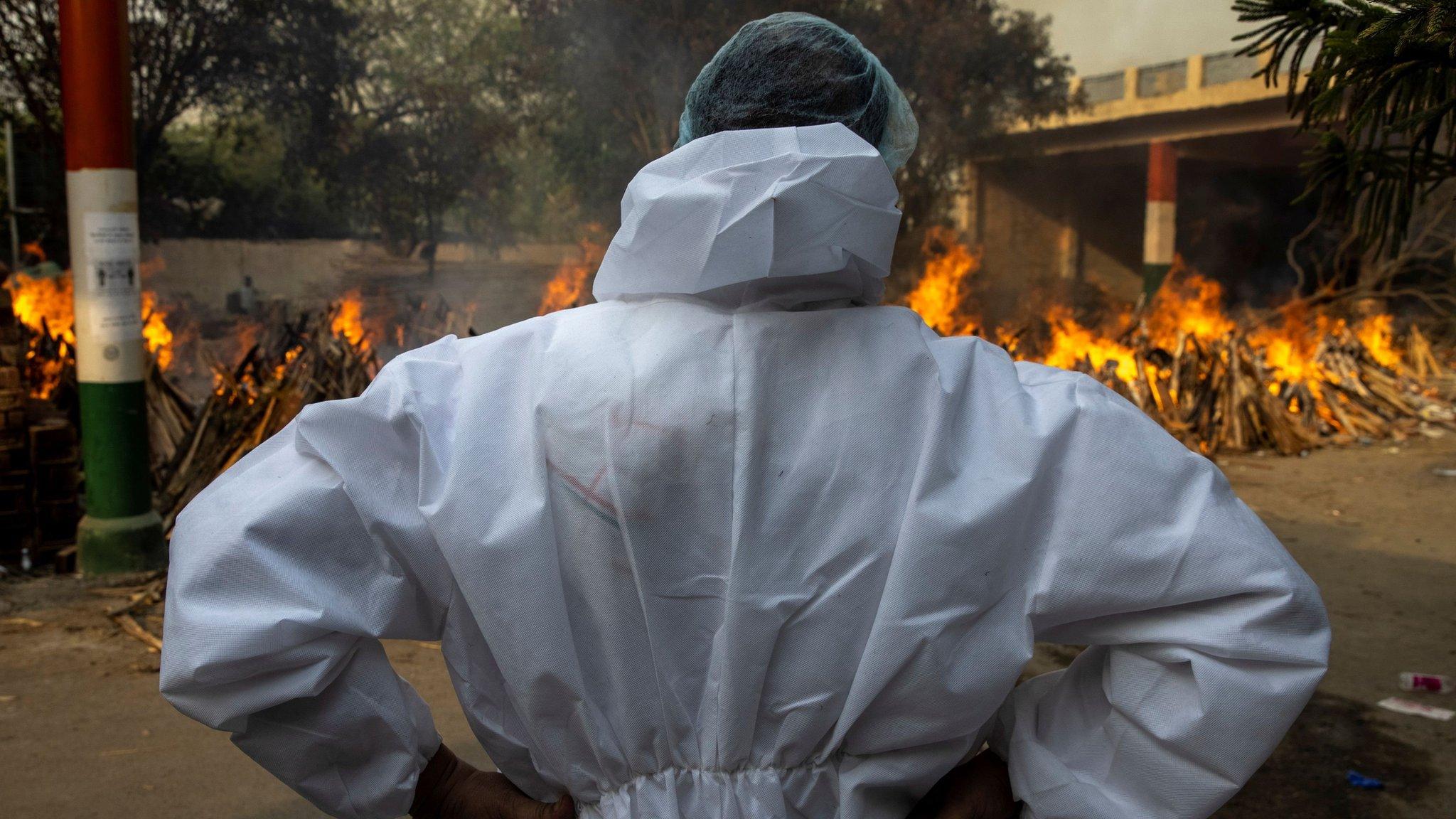
- Published28 April 2021
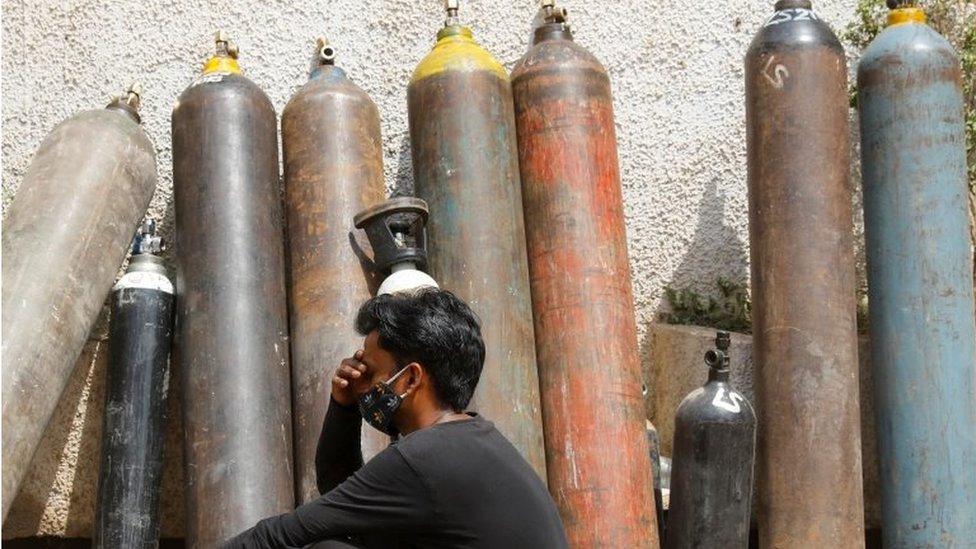
- Published28 April 2021
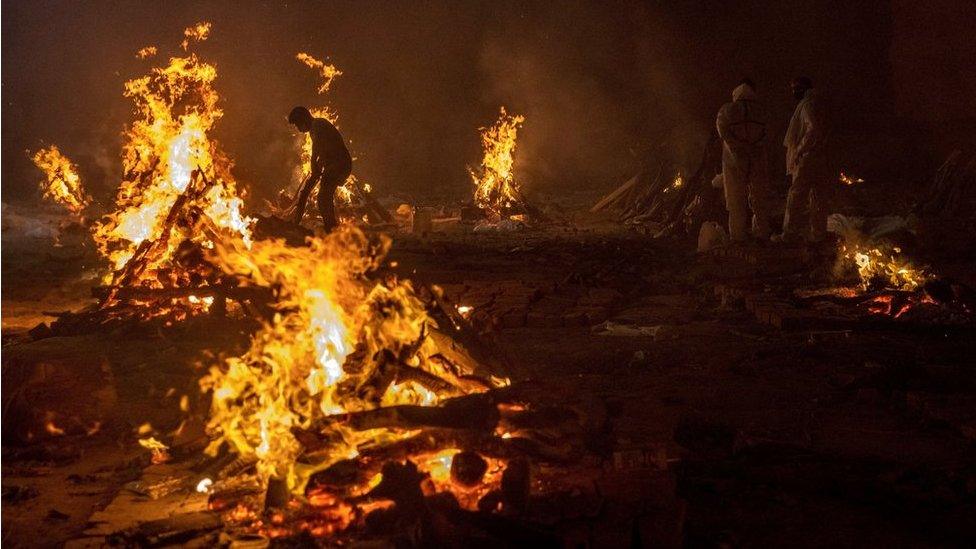
- Published29 April 2021
